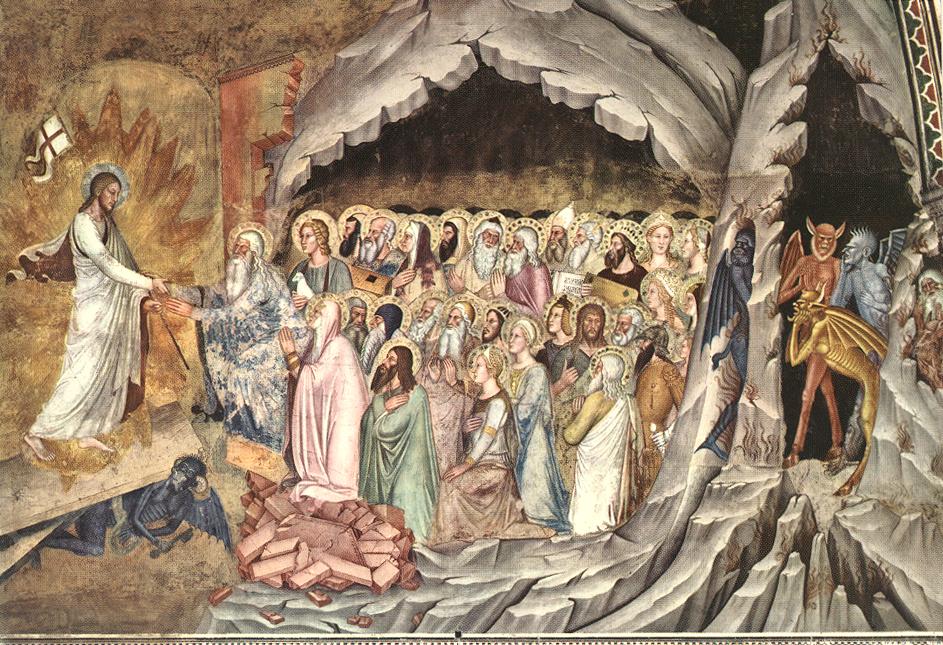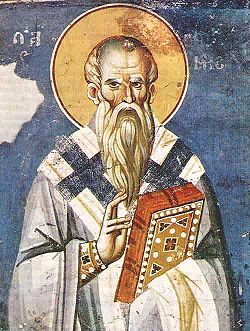 I was reading up on the interpretation of the “spirits in prison” passage in 1Peter 3:19-20 in John H. Elliott’s Anchor Bible Commentary when I realized that one of the primary interpretations held by the church fathers seemed to have been partially rooted in an extant OT textual tradition. As Elliott references a few texts from the fathers (particularly Irenaeus and Justin Martyr) to identify their interpretive tradition, he observes that in their addressing of the descent of Christ, they do not openly refer to or quote 1 Peter 3:19-20, but to a textual tradition seemingly shared by early fathers that is no longer attested to by any biblical manuscripts we have recovered thus far.
I was reading up on the interpretation of the “spirits in prison” passage in 1Peter 3:19-20 in John H. Elliott’s Anchor Bible Commentary when I realized that one of the primary interpretations held by the church fathers seemed to have been partially rooted in an extant OT textual tradition. As Elliott references a few texts from the fathers (particularly Irenaeus and Justin Martyr) to identify their interpretive tradition, he observes that in their addressing of the descent of Christ, they do not openly refer to or quote 1 Peter 3:19-20, but to a textual tradition seemingly shared by early fathers that is no longer attested to by any biblical manuscripts we have recovered thus far.
The view spoken of as espoused by these early fathers (as 1 Peter 3:19-20 has frequently been interpreted, even among later reformers such as Calvin) is as follows: when Christ descended (πορευθεὶς – having gone) to the realm of the dead upon His death before His resurrection, He in the spirit proclaimed good news to the righteous who perished before the flood (and in some cases all those faithful to God before Christ came) whose souls were imprisoned there to deliver them (most likely in conjunction with 4:6).
Oddly enough, though it may be in mind, this specific passage is not sited in defense of this view which some of the apostolic fathers clearly espoused but is supported by an unknown text attributed to Jeremiah (and also once to Isaiah by Irenaeus [Against Heresies 3.20.4]), referred to often by scholars as the “Jeremiah Logion”. We find this supposed lost textual tradition cited in Justin Martyr’s Dialogue with Trypho, 72. In context, Justin charges his Jewish interlocutor’s teachers with a most sweepingly general accusation that they have removed from the true scriptures, which Justin argues the LXX rightly represents or interprets. Trypho then asks for an exmaple of these alleged texts that have been removed by his Jewsih kinsmen who militantly appose the Christian faith. Justin gives two examples: one he says from Esdras and the other from Jeremiah. The supposed Jeremiah fragment is at the heart of our discussion. He says it read as follows:
“The Lord God remembered His dead people of Israel who lay in the graves; and He descended to preach to them His own salvation.” – Dial. 72
Interestingly enough, we see the same kind of quotation by Irenaeus in his Against Heresies in multiple locations at important theological intersects (3.20.4; 4.22.1; 4.33.1; 4.33.12; and 5.31.1). This supposed extant OT textual tradition seems to be a theological butress to Irenaeus’ understanding of the descent of Christ. In the very places you would expect him to default a quotation of 1 Peter 3:19-20, he does not, and instead supplies us with the same extant quotation. The citation is recorded in minor formulaic variations as follows:
“And the holy Lord remembered His dead Israel, who had slept in the land of sepulcher; and He came down to preach His salvation to them, that He might save them.” – Her. 3.20.4 (here Irenaeus claims this passage is from Isaiah)
“And the holy Lord remembered His dead Israel, who had slept in the land of sepulcher; and He descended to them to make known to them His salvation, that they might be saved.” – Her. 4.22.1 (here Irenaeus claims the passage is from Jeremiah, in congruence with the claim by Justin Martyr)
“The holy Lord remembered His own dead ones who slept in the dust, and came down to them to raise them up, that He might save them.” – Her. 5.31.1 (here Irenaeus states that “others”, in context speaking of the prophets, have said this, indicating he may of thought both prophets had recorded this sentence in its most rudimentary form)
It seems unlikely for the fathers to invent similiar passages to build a theology upon, especially as they are in context being used apologetically. Due to its frequent citation, its apolegetic usage, and its proposed deletion from manuscripts due to Jewish removal, this leaves us with the strong possiblity of the previous existence of an extant LXX tradition that provides seemingly adequate support for a possible view regarding the descent of Christ.



 When reading the Apostolic Fathers such as 1 Clement as a biblical studies student, my first knee jerk reaction is to read it with the excessively critical lenses of one who is searching for theological trajectories that can be traced from the scriptures to these deuterocanonical texts and do comparative work in order to be able to say something about the authorial conception of God. Last night, to my own amazement I must admit, I did not read the text in this way. I just layed back comfortably in my bed, tired from a long day, and said “hey, why not read some 1 Clement (if you are thinking random, I know)?”
When reading the Apostolic Fathers such as 1 Clement as a biblical studies student, my first knee jerk reaction is to read it with the excessively critical lenses of one who is searching for theological trajectories that can be traced from the scriptures to these deuterocanonical texts and do comparative work in order to be able to say something about the authorial conception of God. Last night, to my own amazement I must admit, I did not read the text in this way. I just layed back comfortably in my bed, tired from a long day, and said “hey, why not read some 1 Clement (if you are thinking random, I know)?”